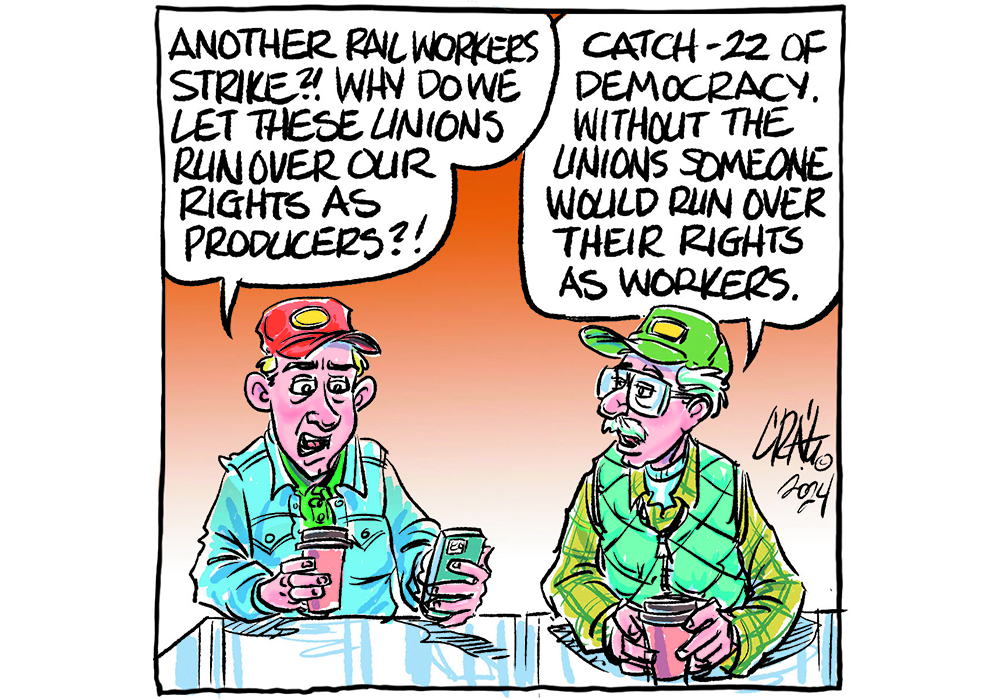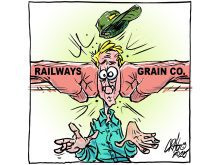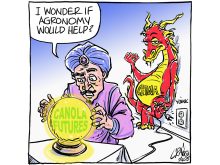Difficult labour negotiations between the two major railways and their unionized employees have just put the country through the wringer, and tough questions must be asked:
Why was the situation allowed to deteriorate to the point where almost the entire rail transportation system was shut down, albeit briefly?
Is there a way to avoid messes like this in the future?
Read Also

High prices see cow-calf producers rushing to incorporate
Farm accountants are reporting a steady stream of cow-calf producers rushing to get their operations incorporated ahead of selling their calves this fall.
Most of us know how Canada ended up with last month’s transportation turmoil.
Canadian National Railway and Canadian Pacific Kansas City have been negotiating a new contract with the Teamsters Canada Rail Conference union since last November.
The two companies aren’t usually in contract talks at the same time, but CN had asked for an extension to its existing deal in 2022 in response to new federal labour rules.
The employees voted for strike action in May, but Ottawa delayed job action by asking the Canada Industrial Relations Board to rule on whether rail traffic is an essential service.
In August, the board ruled that it is not an essential service, restarting the clock on job action.
CN asked the federal government to force the talks into binding arbitration, the government said no, the railways locked out employees Aug. 22 and Ottawa sent the talks to binding arbitration later that day.
This begs the question of why the federal government let the lockout happen if it knew it was going to eventually force binding arbitration.
It’s important to let matters take their proper course, but a lot of grief could have been avoided by forcing binding arbitration on Aug. 21 instead of late in the day Aug. 22.
An even bigger question is why the CIRB ruled that rail traffic is not an essential service, considering how important it is to the Canadian economy.
The board was specifically asked to decide if a rail stoppage would put public health and safety at risk, and it determined that it would not.
One can argue that even though no one was going to die in the short term, a shutdown of both national railways at the same time certainly poses a risk to the health of the Canadian economy.
However, as appealing as it may be to declare a rail strike/lockout off limits, there are other factors at play, particularly the right of workers to withhold their labour in a contract bargaining dispute.
Back-to-work legislation is not uncommon in this country, but it must be done with care to ensure all rights are respected, not just those whose livelihoods are threatened by a strike.
That leads us to the crux of this matter: as much as we may enjoy living in a society with democratic rights and freedoms, it comes with a cost.
Autocratic nations never have to worry about these kinds of problems, but most of us would agree it’s better to live here than there.
The planning and policy world has a name for this type of dilemma — a wicked problem. It’s a problem that is difficult or impossible to solve because of incomplete, contradictory and changing requirements that are often difficult to recognize. One decision results in an unintended consequence while another decision results in yet another unintended consequence.
That seems to be what we have with our current rail transportation crisis.
The system, flawed as it is, seems to have muddled its way through to a semi-palatable destination.
In the bigger national picture, development may be slowed from time to time and the economy may take the occasional hit, but rights are protected and our way of life is preserved.
It might be the best we can hope for from this wicked problem.
Karen Briere, Bruce Dyck, Barb Glen, Michael Robin, Robin Booker and Laura Rance collaborate in the writing of Western Producer editorials.















